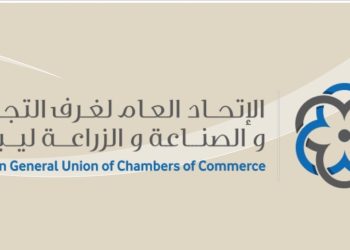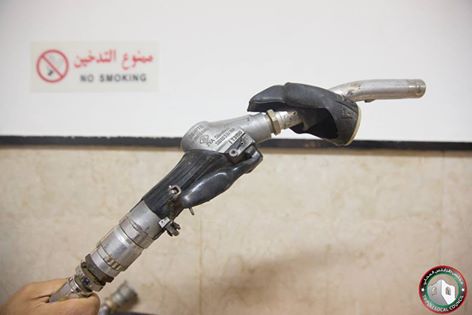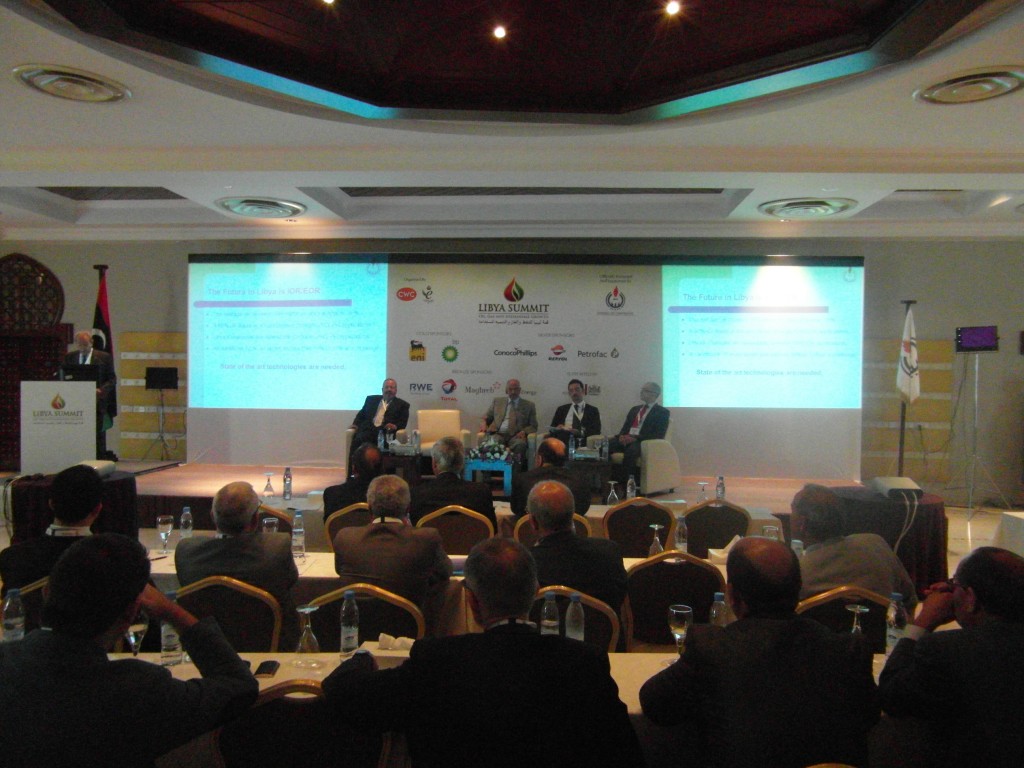
By Sami Zaptia.
Tripoli, 25 September 2012:
The ‘Libya Summit – Oil Gas and Sustainable Growth’ opened yesterday morning at the Corinthia hotel. The conference was officially opened by Abdulrahman Benyezza Libya’s Minister of Oil and Gas and Renewable Energies.
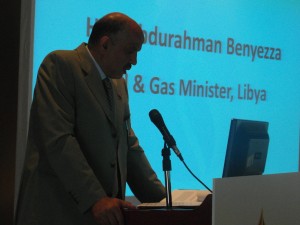
In a very short opening speech, Minister Benyezza noted that this was the first major oil and gas conference in Libya since liberation. Libya had reached its current high oil production levels in record time he highlighted, as he paid tribute to the local Libyan workforce in achieving this.
Referring to the recent successful elections of Libya’s General National Congress (GNC), Minister Benyezza felt that Libya had overall a bright future to look forward to, which augured well for its hydrocarbon sector.
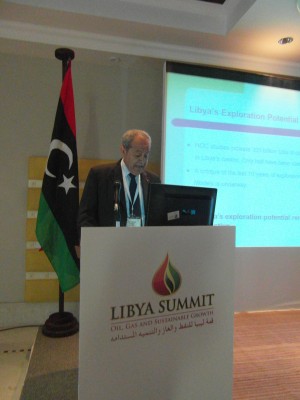
In contrast and during a longer power-point presentation, the National Oil Corporation (NOC) head Nuri Berruien also paid tribute to the Libyan workforce that he felt was instrumental in ramping up oil production levels. But he also emphasized that he was counting on them for an equally prosperous future in Libya’s hydrocarbon sector. ‘About 95% of the work in the Libyan oil sector is carried out by Libyans, so we are well positioned to move the sector forward in the future’.
Regarding the security situation in Libya, Burruien felt that the situation had stabilized and that while Tripoli was quite safe, he felt that even Benghazi was now quite safe to work in.
‘We were asked to hold this conference abroad, but we wanted to hold here in Libya’, he said as he gestured at the two hundred –odd mostly foreign attendees in the conference room.
He felt that the recent insecurity in Benghazi was a passing phenomenon and that the authorities had taken the necessary action to stabilize the situation. He was keen to pit out that security was very good at the oilfields.
‘Libya’s oil sector was destroyed by the old regime – by design’, Burruien emphasized. ‘Libya still has huge hydrocarbon reserves to be exploited and it will remain an exporter for decades. We can add at least another 25 years of production at current rates which would keep Libya amongst the leading exporters’, the Minister said.
Indicating the new free market, private sector and decentralization outlook of the new Libyan regime, Burruien said that he hoped that ‘the private sector in Libya will develop quickly so as to be able to play a part in the development of this sector’.
Asked about the possibility of any new bid rounds being opened soon, Burruein said that ‘there would be no bids until a new elected and fully sovereign government is in place’.
With regards to the status of current contracts, Burruien repeated that ‘some contracts would be reviewed’, without giving any indications of what form this would take nor giving any clues as to which contracts. [/restrict]



